Normal Word Problems Worksheets for Ages 5-8 - Page 2
45 filtered results
-
From - To
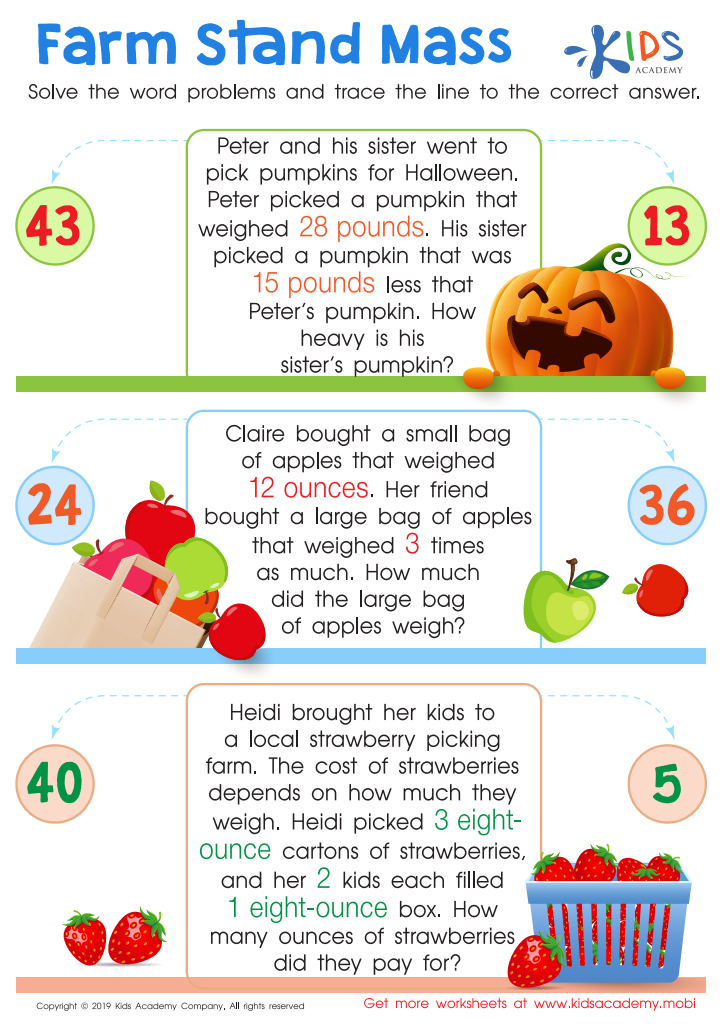

Farm Stand Mass Worksheet
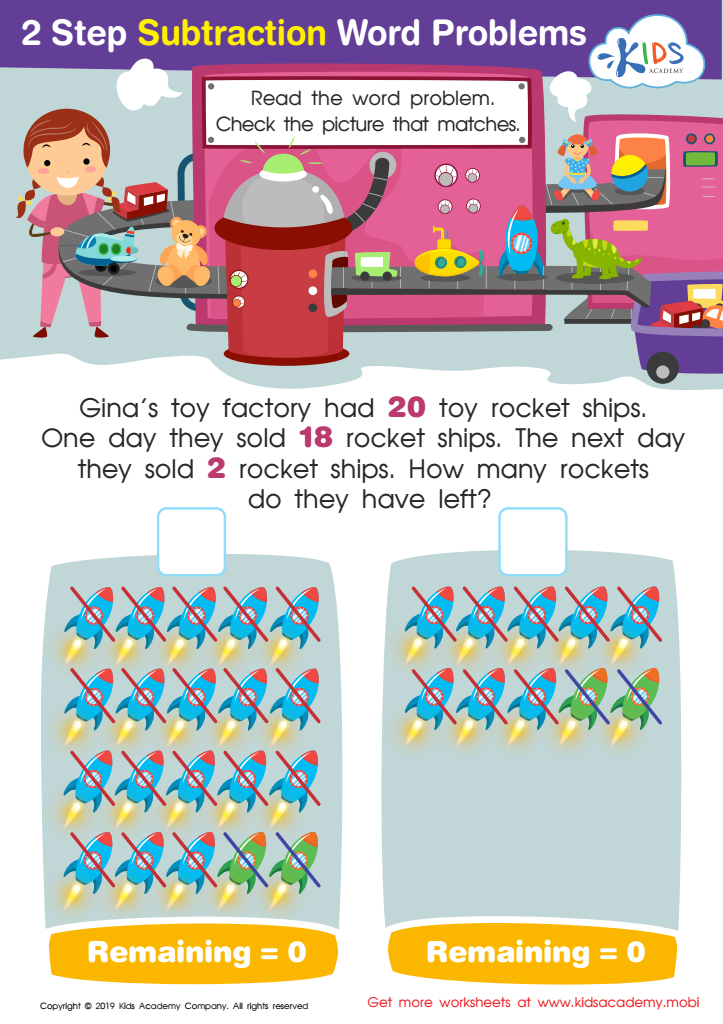

Step Subtraction Word Problems Worksheet
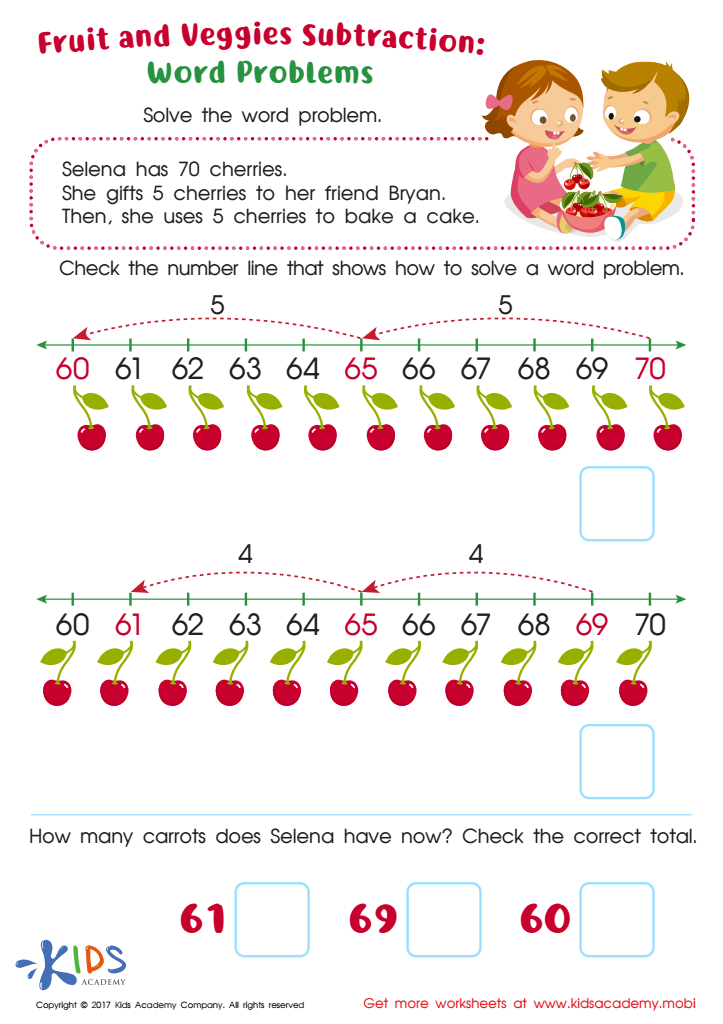

Subtraction Word Problems Free Printable
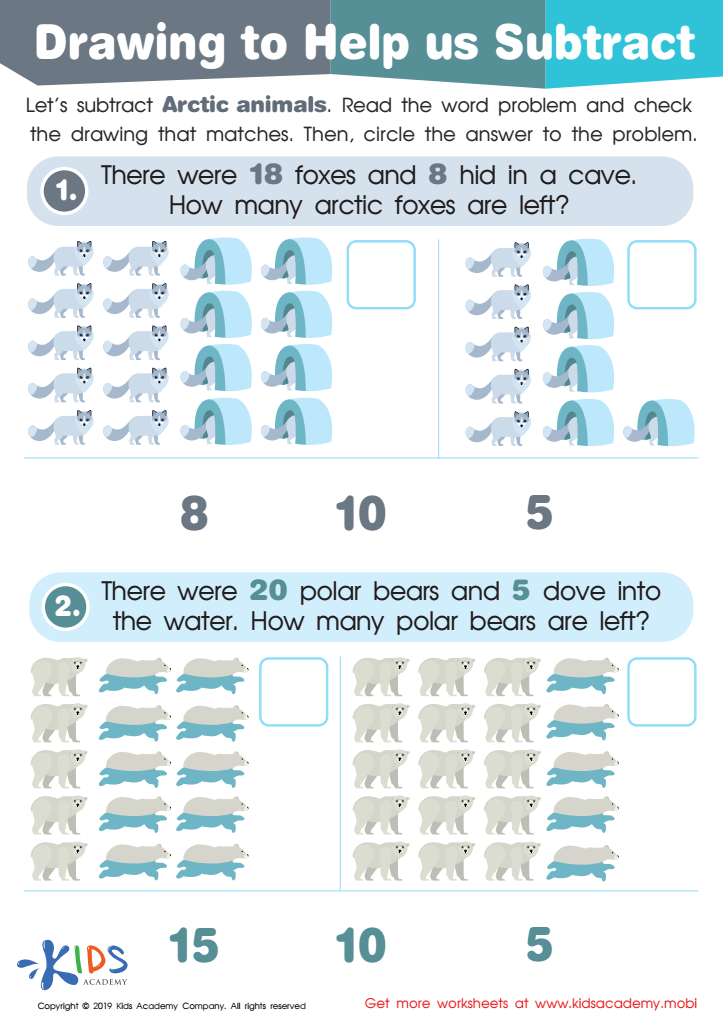

Drawing to Help Us Subtract Worksheet


Solve the Problem: Trick–or–treating Worksheet
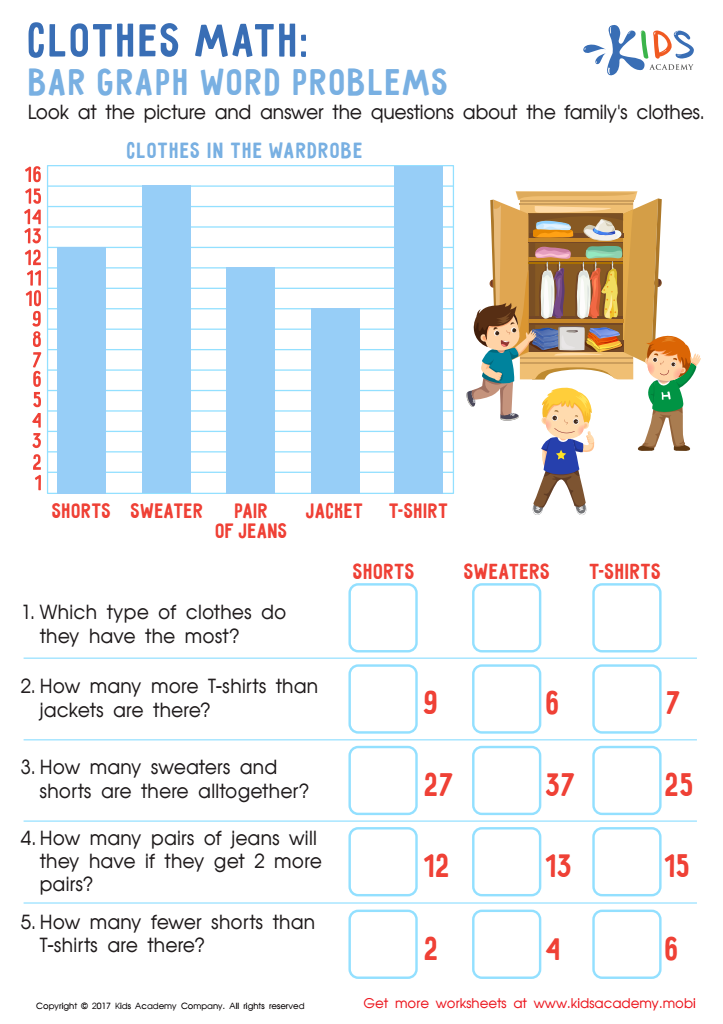

Clothes Math: Bar Graph Word Problems Worksheet
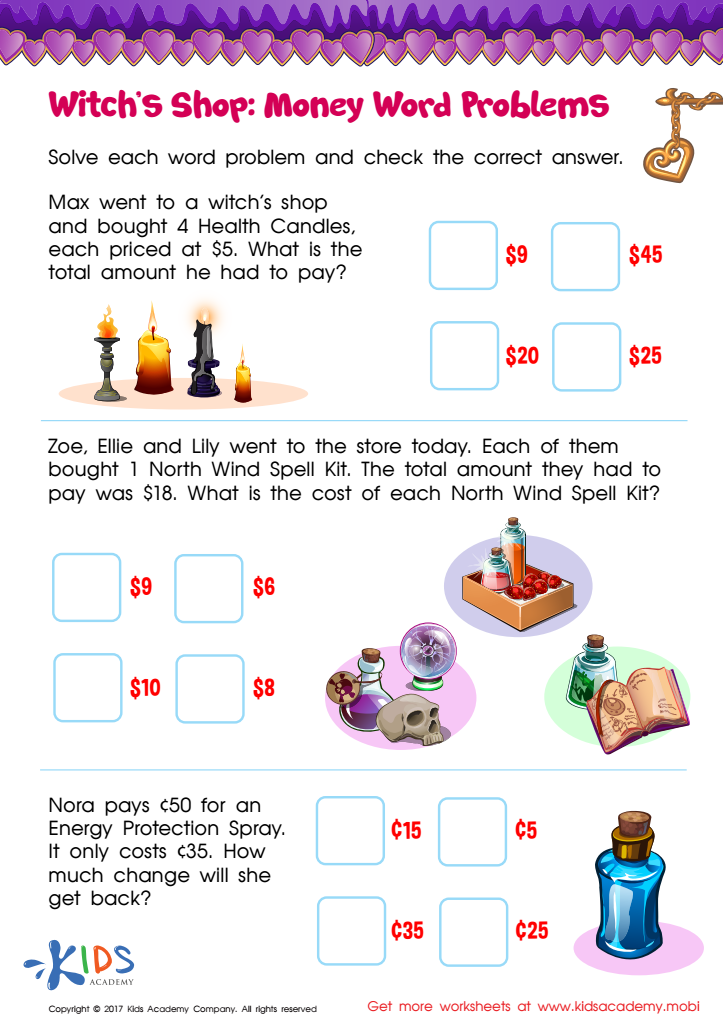

Money Word Problems Printable
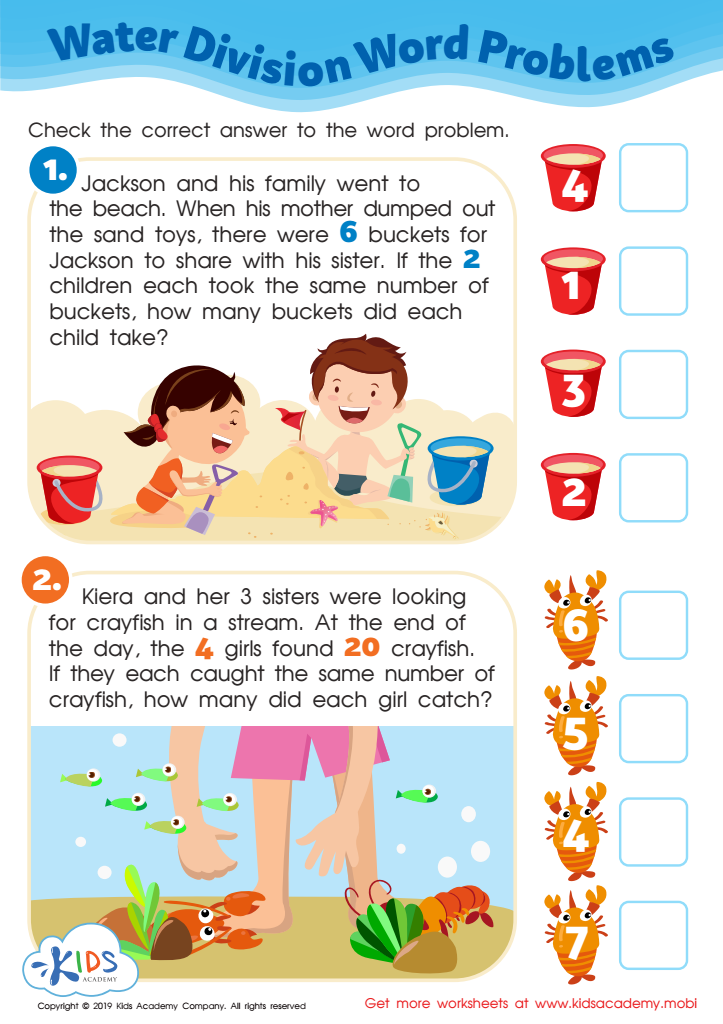

Water Division Word Problems Worksheet
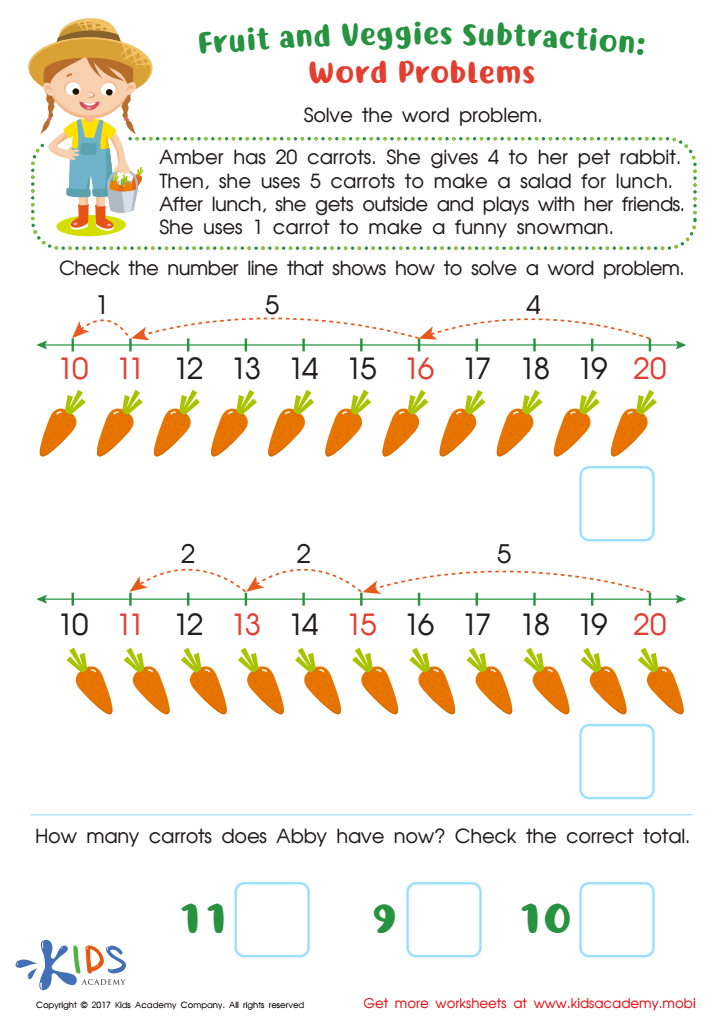

Subtraction Word Problems Printable


Word Problems: Assessment 2 Worksheet


Addition and Subtraction: Word Problems Worksheet


Dividing with Landforms
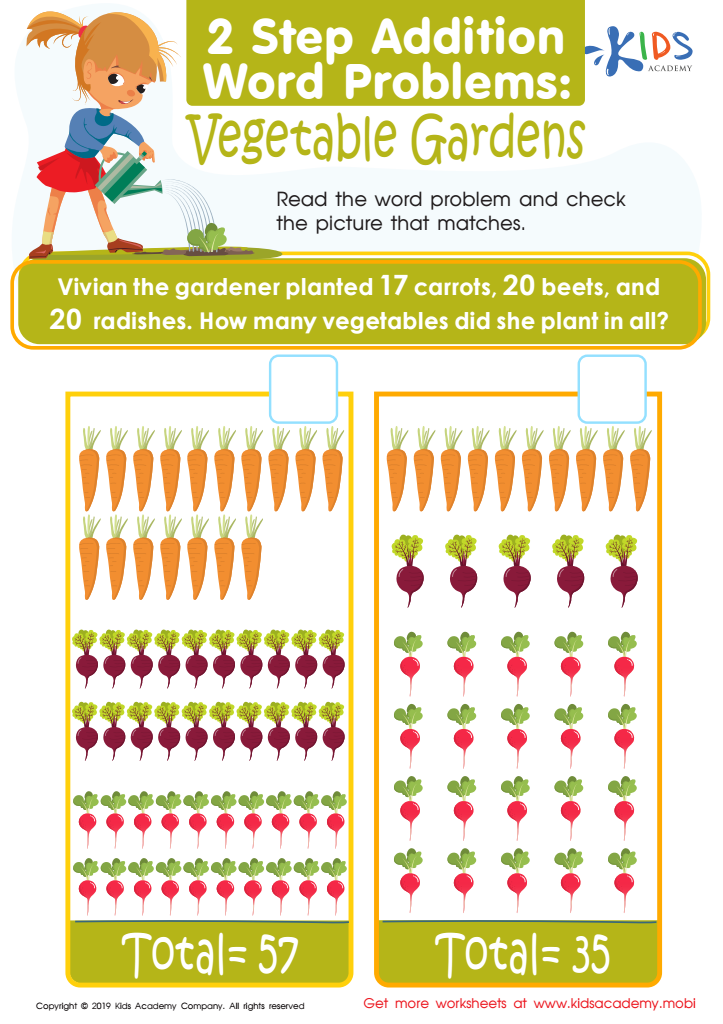

Vegetable Gardens Worksheet
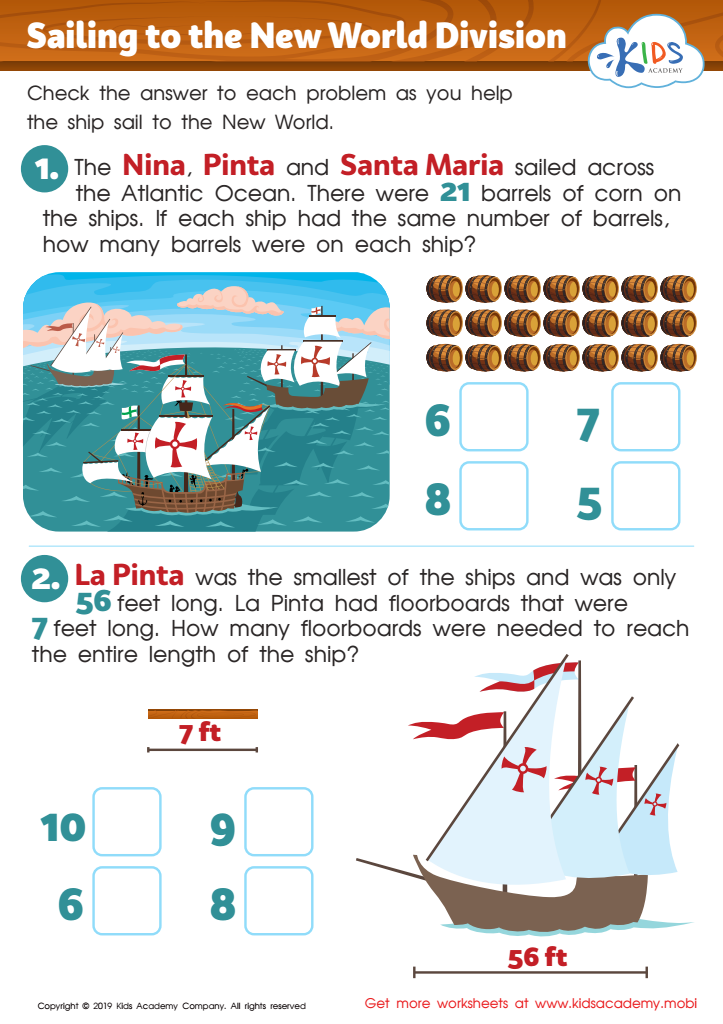

Sailing to the New World Division Worksheet
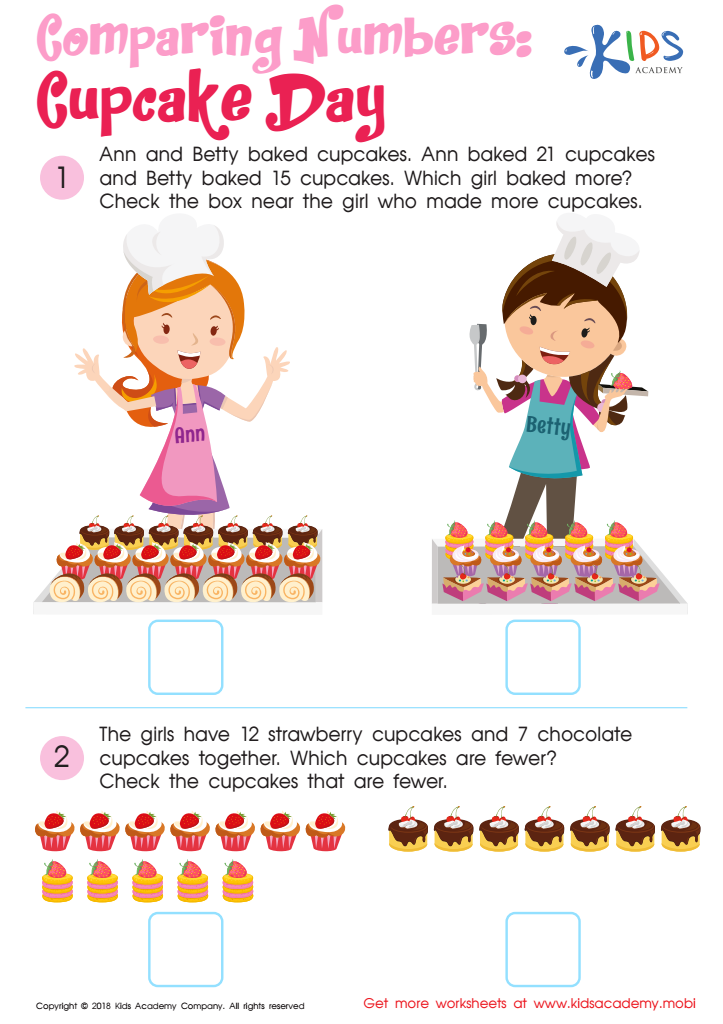

Cupcake Day Worksheet
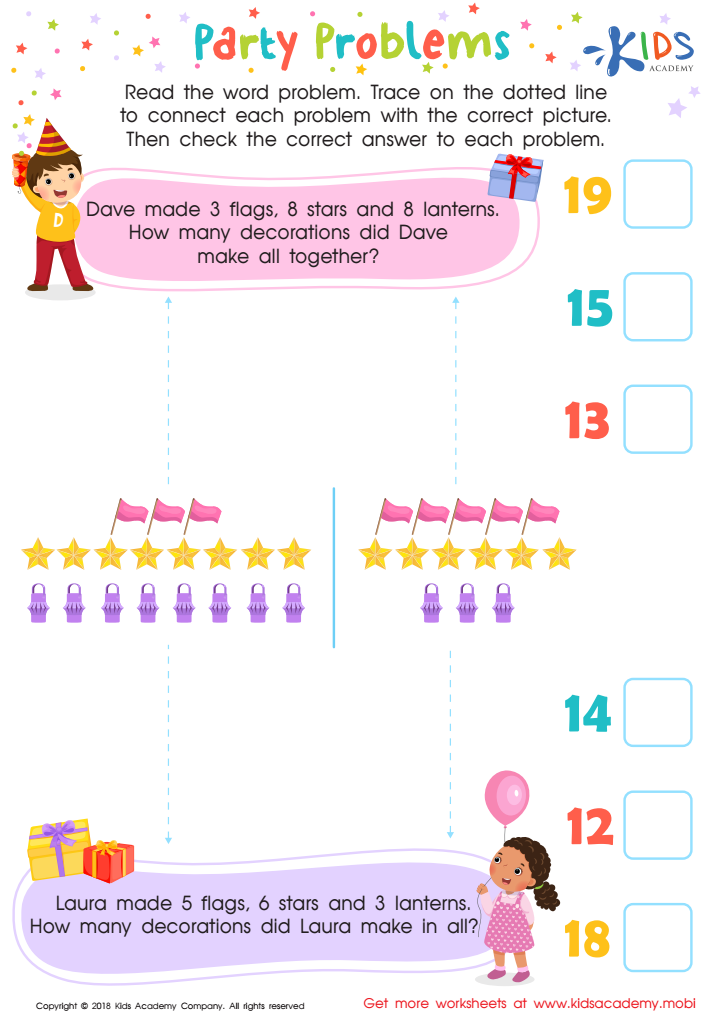

Party Problems Worksheet
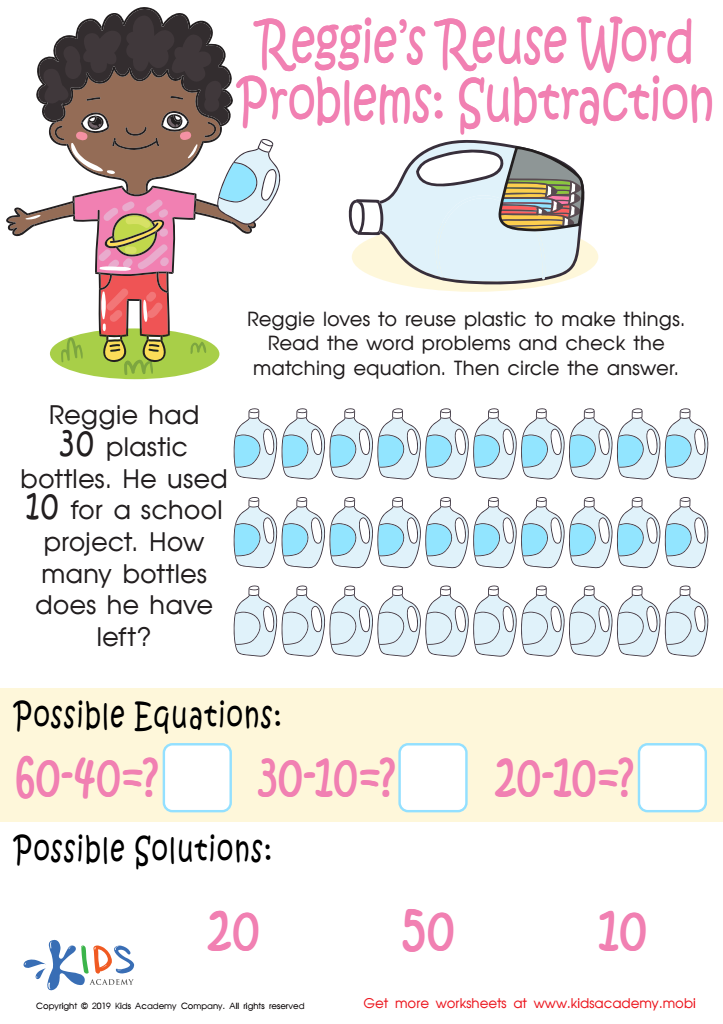

Reggie's Reuse Word Problems: Subtraction Worksheet
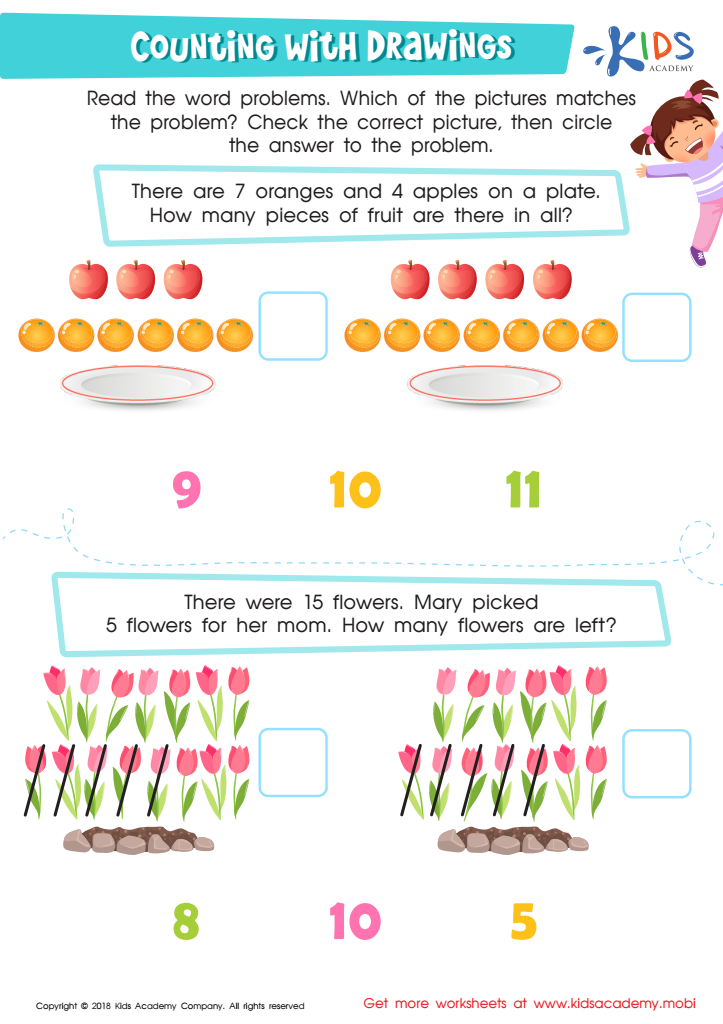

Counting with Drawings:Fruits & Flowers Worksheet
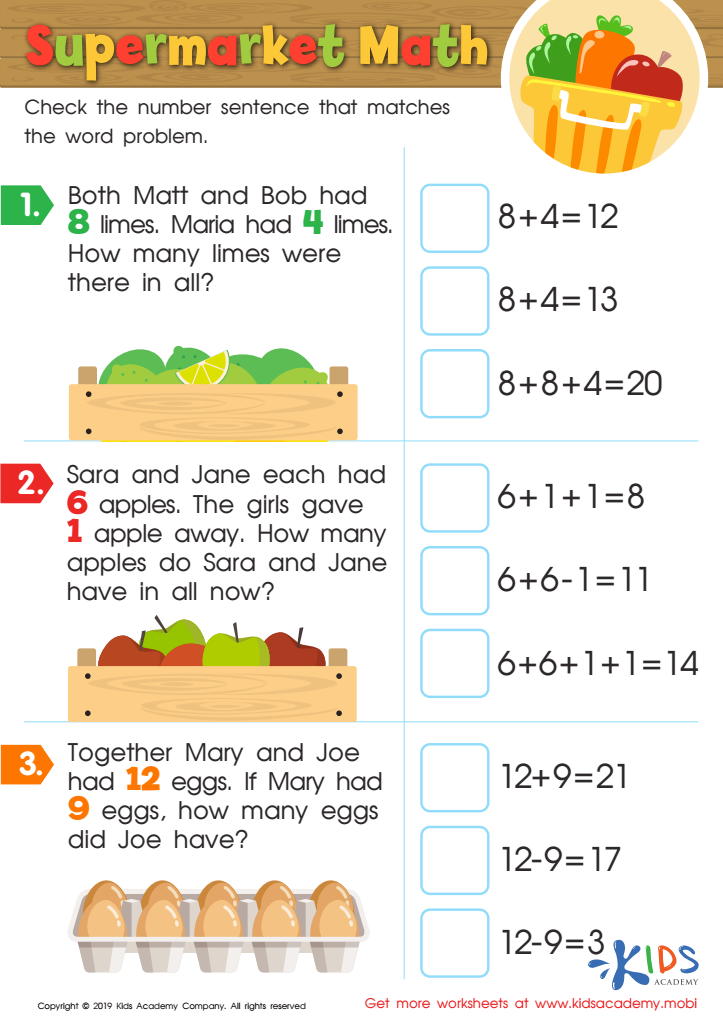

Supermarket Math Worksheet
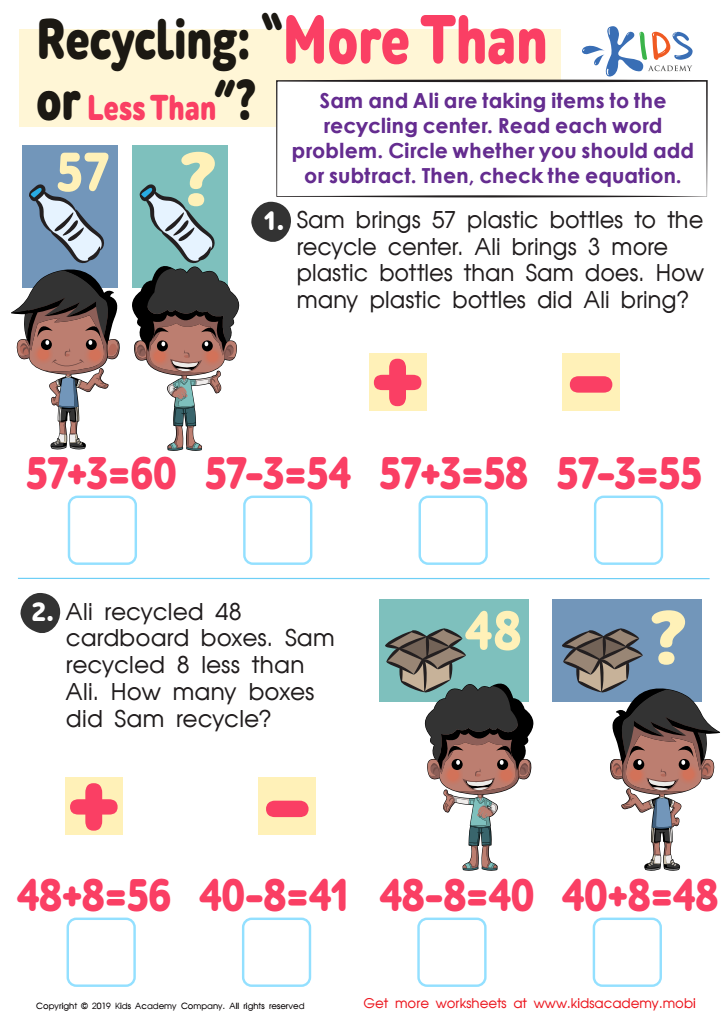

Recycling - More or Less Worksheet
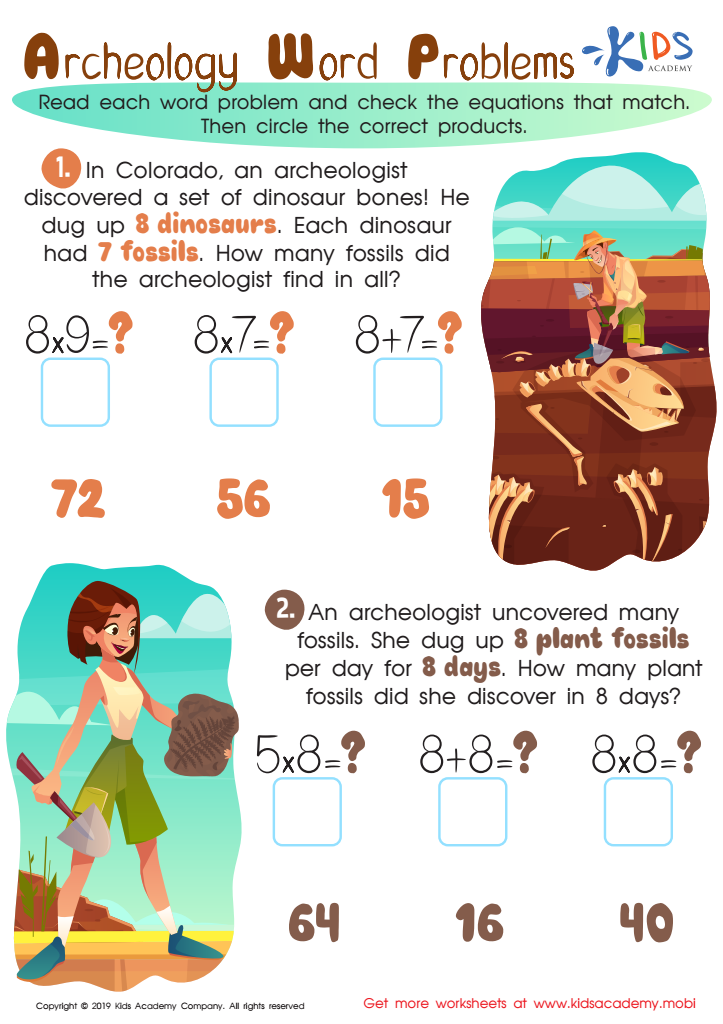

Archeology Word Problems Worksheet
Normal word problems for ages 5-8 serve as fundamental building blocks in a child's educational journey. These problems introduce young learners to the practical applications of math, nurturing critical thinking and problem-solving skills that are essential for their academic and everyday life. For parents and teachers, focusing on word problems helps children build a strong mathematical foundation while also enhancing their reading comprehension abilities.
At this developmental stage, children are naturally curious and able to grasp concepts through relatable and engaging scenarios. Word problems often depict real-life situations, which makes learning math more meaningful and relatable. For instance, problems involving scenarios like sharing apples or counting toys help children understand abstract numerical concepts through tangible examples.
Moreover, solving word problems requires children to interpret language carefully and identify relevant information, bridging the gap between verbal and numerical understanding. This dual focus promotes a symbiotic growth in both literacy and math skills. Engaging with word problems also fosters persistence and resilience; children learn that finding solutions often involves breaking down a problem into manageable steps.
Therefore, parents and teachers should encourage practice with normal word problems to lay a robust educational foundation, preparing children for more complex problem-solving in later grades and in their future lives.

 Assign to My Students
Assign to My Students
















